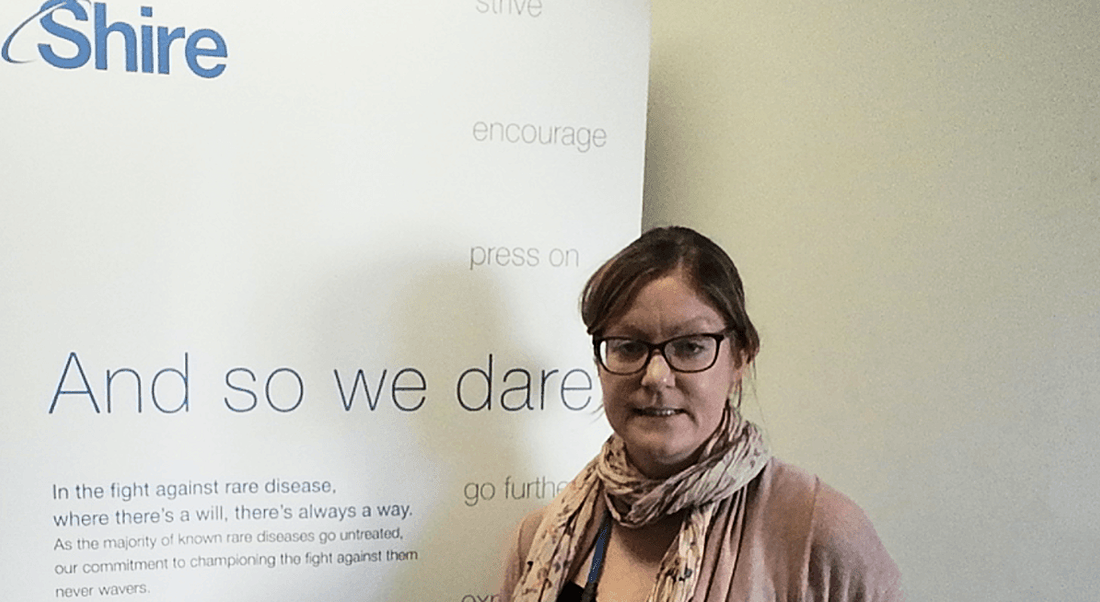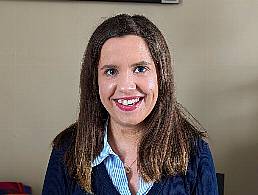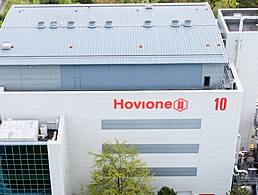For Laura Murphy, the importance of the work she and her colleagues do at Shire was really brought home while she supported a family member living with disease.
Pharmaceuticals is big business, and large companies such as Shire are self-contained ecosystems with hundreds of moving parts. It takes a huge amount of people from a variety of disciplines to make the work the company does possible.
It’s such a large operation that it can be easy to lose sight of the ‘why’ amid the noise. For Laura Murphy, a business excellence and learning lead at Shire, the importance of the organisation’s work was really brought home when she encountered disease in her personal life.
Supporting a family member throughout the highs and lows of living illness really illuminated the importance of the life-saving and life-improving work that Shire does. We spoke to Murphy about what sparked her interest in life sciences and where the industry is headed.
What drew you to life sciences?
I always had a keen interest in science. My mother worked as a medical laboratory scientist, and from an early age I remember her showing me around the laboratory.
I went on to complete a degree programme in analytical science in DCU and a master’s programme in pharmaceutical quality assurance in DIT Kevin Street. I loved the lab assignments in college, which led me to my first role as a quality control lab analyst.
What’s the best thing about working in life sciences?
I think it’s the fact that I’m involved in something that makes a difference to people and families; knowing that what we manufacture helps people with life-altering conditions to lead better lives. It really gives a great sense of pride to work in an industry that is striving to support patients with rare disease.
What’s the most exciting development you’ve witnessed in life sciences since you started working in it?
When I started in the sector, the focus was on minimising the impact of disease. The advances and innovation in this sector have been phenomenal in the past decade. Now, the focus is on customisation, prevention and early detection. This is particularly important in the rare disease area where it can take between five and seven years to obtain a diagnosis.
What aspect of your job did you struggle/have you struggled to get to grips with?
Prioritisation has been an area where I have struggled throughout my career. I am very good at writing to-do lists, yet the problem with the list is, sometimes, they can get too long. Sometimes, I can lose sight of the value that completing the activity will deliver.
I think working closely with my colleagues has helped me a lot in this area, and asking for feedback has helped me with this. We visually manage our workload and, as a self-directed work team, we hold ourselves mutually accountable for our performance.
What’s been the hardest thing you’ve had to face in your career, and how did you overcome it?
I work in the area of operational excellence, which is about improving the work we do every day. The biggest challenge I face as part of my role is bringing people along that change journey as everyone is different and has their own views and opinions.
The hardest thing I’ve faced in my career is seeing people taking the change personally and seeing the discomfort in the new way of working. One of my mentors always said to me: “It’s one conversation every day.” Everyone gets there in the end but people get there at different times. As my career progressed, it’s a message that has really resonated with me.
If you had the power to change anything within the STEM sector, what would that be?
The biopharma sector is such a young sector and there is a huge opportunity to learn from other areas within the STEM sector but also outside it; looking at other industries such as the motor industry, where cost margins are low and the industry now manufactures cars direct to customer specifications. Wouldn’t it be great to have medicine customised to a person, treating the disease with no side effects?
Which of your personality traits makes you best suited to your job and this sector?
I like to challenge myself to do new things, and continuously improve. I think that aspect of my personality is suited to my role.
Is there something in your personal life that helps you/has helped you in your job?
I think my life experience has really helped me focus in my job. A family member being diagnosed with a disease really brings home the importance of what we do. You experience the emotional rollercoaster with them, the hope they feel when there is medicine that could help, the highs and lows of the doctor’s visits and test results, the hospital visits, sitting in waiting rooms and A&Es. There is a huge importance in giving people a better quality of life and that really helps focus the mind.
How do you make connections with others in the STEM community?
Here in Shire, we have a continuous improvement network that circulates daily updates from sites around the global network. It’s great to see photos of the improvements that have been made in our sites. Especially as we are start-up, it’s so important for us to adopt what is already working in the network and apply it for Dunboyne.
Has mentorship or coaching been important in your career?
Mentoring and coaching have been critical in my career development. I have really strived in an environment of continuous feedback. It has helped develop me as a person both from a personal and professional side. I wouldn’t be in the role I am today without the great mentors I have worked with and the coaching I received.
What advice would you give to someone thinking about a career in your area?
My advice would be to go for it. The biopharma industry has huge opportunities to learn, grow and develop while helping patients. In the rare disease space, this is so important; we are the champions for our patients.
I have never looked back in my career in biopharma and there are so many opportunities. It is really an exciting area to work. If you are curious, and have an appetite for learning and continuous improvement, this is the place for you.




